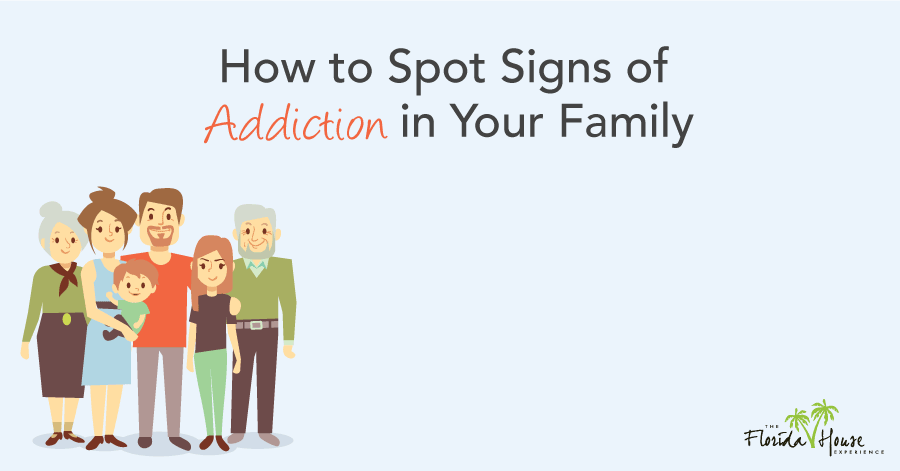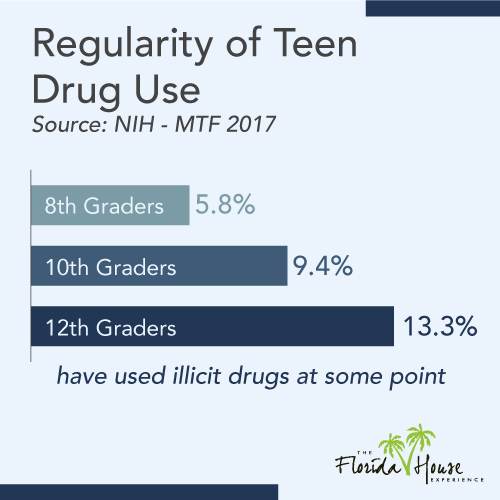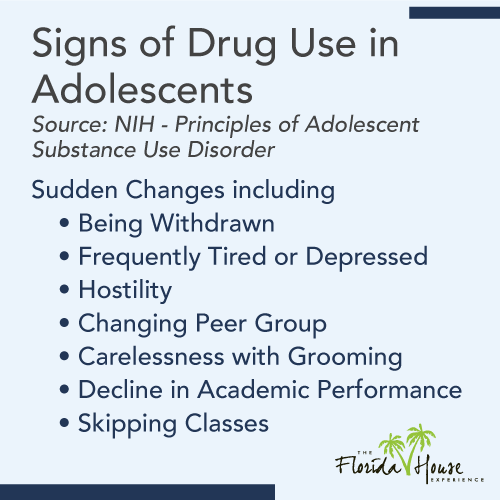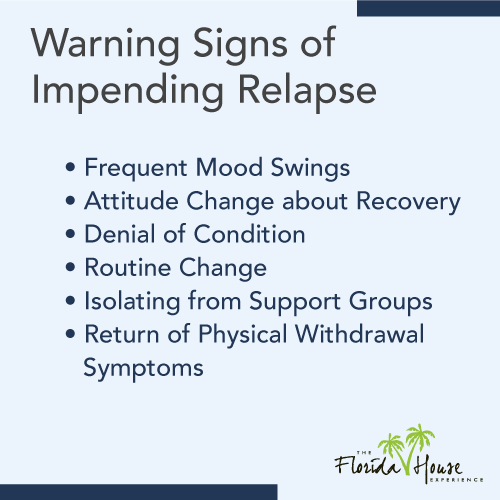
If you are a parent or family member of someone who has experimented with drugs or is in recovery, learning to spot signs of addiction in individuals is essential. Spotting these signs, however, tends to be hard to do even if you know your loved one well. First, realize that drug use is not uncommon and that your loved one is likely to have experienced it at some point. Addiction occurs when the body begins to demand the use of alcohol or drugs to feel normal and function. And, it is increasingly common. DrugFree.org notes that 240 million people across the world have an alcohol addiction. Additionally, 15 million people use some type of injection drug to get high. Considering this, recognize that even if your loved one “knows better” or “would never do that,” they really could be struggling with addiction and you may not realize it.
 Drug use is surprisingly common among teenagers. For example, the National Institutes of Health published a study that found that 5.8 percent of eighth-grade students, 9.4 percent of 10th graders, and 13.3 percent of twelfth-grade students have used illicit drugs at some point. It’s clear, drug use and abuse can happen. But how do you know that your loved one has begun regular use and developing an addiction?
Drug use is surprisingly common among teenagers. For example, the National Institutes of Health published a study that found that 5.8 percent of eighth-grade students, 9.4 percent of 10th graders, and 13.3 percent of twelfth-grade students have used illicit drugs at some point. It’s clear, drug use and abuse can happen. But how do you know that your loved one has begun regular use and developing an addiction?
When addiction occurs, a person’s body and brain change. The chemicals in the drugs change the way the brain works. In fact, many people who form addictions are simply unable to stop using because of these changes. The brain tells the body it needs the drugs. And, over time, the need for more drugs increases. Ultimately, individuals will begin to show signs of dependency. The signs to look for in addiction fall within a few categories.
What Are the Behavioral Symptoms of Addiction?
 What are signs of addiction in terms of behavioral changes? They can be many and they can vary depending on the type of drug abused. Some of these behavioral manifestations may include:
What are signs of addiction in terms of behavioral changes? They can be many and they can vary depending on the type of drug abused. Some of these behavioral manifestations may include:
- Increased aggression with other people, often unprovoked
- Lethargy or no longer engaged with things or people around them
- Changes in a personality, whether these seem over the top or simply more withdrawn
- Many people experience depression and anxiety
- Some show dramatic changes in their day to day habits; often, priorities are no longer the same
- Individuals may start engaging in risky behavior, such as criminal acts or driving under the influence
- They no longer have the same friends but have a new network of people they talk to and interact with
By the time you notice changes in an addicted family member or friend, addiction has likely begun to set in. Part of addiction is actively hiding use and behaviors that may give addiction away. You notice they aren’t partaking in the things they love to do. They do not want to spend time with you. They may no longer seem to care about what was important before. Behavior changes of any type are a key sign and symptom to look for in any teen or adult.
What Are the Physical Symptoms to Look for in Your Loved One?
The symptoms of addiction do not stop there. Remember, they are changing the way the body functions, too. This is why physical symptoms of drug use tend to be very common. They may include symptoms such as:
- Difficulty concentrating; trouble focusing on a topic during a conversation
- Bloodshot eyes
- Constricted pupils or dilated pupils
- Chills and flu-like symptoms frequently
- Significant changes in weight often losing a significant amount of weight
- A lack of appetite
- Headaches and migraines
- Difficulty sleeping or, in some cases, sleeping a lot
The physical changes are most present immediately after use, or during a period of withdrawal, but they do become increasingly present over time. An individual may look and feel ill all of the time with this condition. And, over time, they stop caring about nutrition, physical appearance, or even who they are friends with.
Note the Signs of Relapse in a Family Member
 If your loved one has suffered from addiction previously, he or she will continue to battle this chronic condition throughout their lifetime. Even the strongest people can suffer from relapse. Yet, the sooner they receive help, the more likely they are to overcome it long term. Common signs of relapse include many of the psychical and psychological symptoms listed here. You may also notice changes in the way they do things – such as hiding information from you. In some situations, they may be more skilled at hiding their condition than they were previously.
If your loved one has suffered from addiction previously, he or she will continue to battle this chronic condition throughout their lifetime. Even the strongest people can suffer from relapse. Yet, the sooner they receive help, the more likely they are to overcome it long term. Common signs of relapse include many of the psychical and psychological symptoms listed here. You may also notice changes in the way they do things – such as hiding information from you. In some situations, they may be more skilled at hiding their condition than they were previously.
What Are Your Next Steps to Getting Your Loved One Help?
Keep in mind that when you spot signs of addiction, it is critical to take action as soon as possible. Most often, individuals who have outward and noticeable signs like this are already struggling significantly under the weight of their condition. But, what can you do?
Your first step is to contact our team or another addiction recovery facility. FHE works closely with families who want to help and support their loved ones but may not have any idea where to start. Sometimes, the best first step is just to acknowledge your loved one’s health and needs. Without any level of force or anger, showing your loved one you care, and you want to help them is critical.
It is also essential to remember one of the key components of addiction. They cannot just stop. And, they will not just stop using. It is not possible for them to do so. Rather, their brain has changed as a result of drugs and alcohol abuse. They need help.
Taking the big step to help your loved one can seem daunting. Many family members try to make excuses for their loved one’s behavior or they simply work to ignore what they suspect. Yet, this cannot make their condition better. If you are seeing the signs of addiction, now is the time to act. And, the good news is you do have options available to help you through this process.
If you believe your loved one could be suffering from addiction, it is essential to seek out help as soon as possible. We encourage you to get started on a path towards recovery. Contact us today by calling us at (866) 653-6220. Our compassionate team of counselors are standing by to take your call 24/7.






